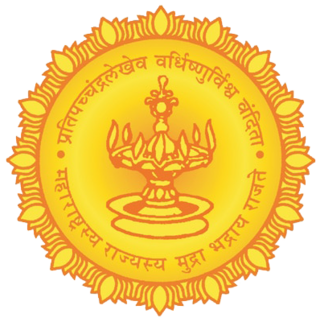The right to silence is a legal principle which guarantees any individual the right to refuse to answer questions from law enforcement officers or court officials. It is a legal right recognized, explicitly or by convention, in many of the world's legal systems.

The Prevention of Terrorism Act, 2002 (POTA) was an Act passed by the Parliament of India in 2002, with the objective of strengthening anti-terrorism operations. The Act was enacted due to several terrorist attacks that were being carried out in India and especially in response to the attack on the Parliament. The Act replaced the Prevention of Terrorism Ordinance (POTO) of 2001 and the Terrorist and Disruptive Activities (Prevention) Act (TADA) (1985–1995), and was supported by the governing National Democratic Alliance. The Act was repealed in 2004 by the United Progressive Alliance coalition.

The Anti-terrorism, Crime and Security Act 2001 is an Act of Parliament of the United Kingdom, formally introduced into Parliament on 19 November 2001, two months after the terrorist attacks in the United States on 11 September. It received royal assent and came into force on 14 December 2001. Many of its measures are not specifically related to terrorism, and a Parliamentary committee was critical of the swift timetable for such a long bill including non-emergency measures.

The Prevention of Terrorism Act 2005 was an Act of the Parliament of the United Kingdom, intended to deal with the Law Lords' ruling of 16 December 2004 that the detention without trial of eight foreigners at HM Prison Belmarsh under Part 4 of the Anti-terrorism, Crime and Security Act 2001 was unlawful, being incompatible with European human rights laws.
The Internal Security Act 1960 was a preventive detention law in force in Malaysia. The legislation was enacted after the Federation of Malaya gained independence from Britain in 1957. The ISA allows for detention without trial or criminal charges under limited, legally defined circumstances. On 15 September 2011, the Prime Minister of Malaysia, Najib Razak said that this legislation will be repealed and replaced by two new laws. The ISA was replaced and repealed by the Security Offences Act 2012 which has been passed by Parliament and given the royal assent on 18 June 2012. The Act came into force on 31 July 2012.
In the law of criminal evidence, a confession is a statement by a suspect in crime which is adverse to that person. Some secondary authorities, such as Black's Law Dictionary, define a confession in more narrow terms, e.g. as "a statement admitting or acknowledging all facts necessary for conviction of a crime," which would be distinct from a mere admission of certain facts that, if true, would still not, by themselves, satisfy all the elements of the offense. The equivalent in civil cases is a statement against interest.
Anti-terrorism legislation are laws with the purpose of fighting terrorism. They usually, if not always, follow specific bombings or assassinations. Anti-terrorism legislation usually includes specific amendments allowing the state to bypass its own legislation when fighting terrorism-related crimes, under alleged grounds of necessity.
The Maintenance of Internal Security Act (MISA) was a controversial law passed by the Indian parliament in 1971 giving the administration of Prime Minister Indira Gandhi and Indian law enforcement agencies very broad powers – indefinite preventive detention of individuals, search and seizure of property without warrants, and wiretapping – in the quelling of civil and political disorder in India, as well as countering foreign-inspired sabotage, terrorism, subterfuge and threats to national security. The law was amended several times during the subsequently declared national emergency (1975–1977) and used for quelling political dissent. Finally it was repealed in 1977, when Indira Gandhi lost the 1977 Indian general election and the Janata Party came to power.

Detention is the process whereby a state or private citizen lawfully holds a person by removing their freedom or liberty at that time. This can be due to (pending) criminal charges preferred against the individual pursuant to a prosecution or to protect a person or property. Being detained does not always result in being taken to a particular area, either for interrogation or as punishment for a crime. An individual may be detained due a psychiatric disorder, potentially to treat this disorder involuntarily. They may also be detained for to prevent the spread of infectious diseases such as tuberculosis.
Administrative detention is arrest and detention of individuals by the state without trial. A number of jurisdictions claim that it is done for security reasons. Many countries claim to use administrative detention as a means to combat terrorism or rebellion, to control illegal immigration, or to otherwise protect the ruling regime.

Unlawful Activities (Prevention) Act is an Indian law aimed at prevention of unlawful activities associations in India. Its main objective was to make powers available for dealing with activities directed against the integrity and sovereignty of India. The most recent amendment of the law, the Unlawful Activities (Prevention) Amendment Act, 2019 has made it possible for the Union Government to designate individuals as terrorists without following any formal judicial process. UAPA is also known as the "Anti-terror law".

The Prevention of Corruption Act, 1988 is an Act of the Parliament of India enacted to combat corruption in government agencies and public sector businesses in India.
From 1984 to 1995, the state of Punjab in northern India was engaged in a power struggle between the militant secessionist Khalistan movement and Indian security forces. The Indian government responded to the escalating Punjab insurgency by launching Operation Blue Star in 1984, storming the Harmandir Sahib, or Golden Temple complex in Amritsar—the center of Sikh religious and spiritual life, where some militant groups had retreated. The Operation was controversial and resulted in death of hundreds of civilians, militants and soldiers. After Sikh bodyguards assassinated Prime Minister Indira Gandhi, further violence ensued.
Sukhwinder Singh Bhatti was a criminal defense attorney in Sangrur district of Punjab, India, and the district's leading defense lawyer for individuals accused of crimes under the Terrorist and Disruptive Activities (Prevention) Act (TADA). TADA was a law in effect from 1985 to 1995 that authorized the preventative detention of persons for up to two years in Punjab based only on suspicion of certain crimes done with the intent to cause terror. The law also established in camera courts, and under Section 21, detainees charged with certain crimes were presumed guilty until proven innocent.
Following the common law system introduced into Hong Kong when it became a Crown colony, Hong Kong's criminal procedural law and the underlying principles are very similar to the one in the UK. Like other common law jurisdictions, Hong Kong follows the principle of presumption of innocence. This principle penetrates the whole system of Hong Kong's criminal procedure and criminal law. Viscount Sankey once described this principle as a 'golden thread'. Therefore, knowing this principle is vital for understanding the criminal procedures practised in Hong Kong.

The Maharashtra Control of Organised Crime Act, 1999 is a law enacted by the state of Maharashtra in India in 1999 to combat organised crime and terrorism. Known as 'MCOCA', the Act provides the State Government with special powers to tackle these issues, including powers of surveillance, relaxed evidentiary standards and procedural safeguards, and prescribing additional criminal penalties, including the death penalty. The law was introduced by a coalition government of the Bharatiya Janata Party and Shiv Sena.

Devinder Pal Singh Bhullar was a former professor. He was convicted by a TADA court in a 1993 Delhi bomb blast case that left nine people dead and injured 31. The Indian supreme court had confirmed his death sentence in a fractured and divided decision. His death sentence has been commuted to life imprisonment by the Supreme Court of India on 31 March 2014.

Shahid Azmi was an Indian lawyer and human rights activist.

The Jammu and Kashmir Public Safety Act, 1978 (PSA) is a preventive detention law under which a person is taken into custody to prevent them from acting harmfully against "the security of the state or the maintenance of the public order" in the Indian state of Jammu and Kashmir. Whereas PSA applies only to Jammu and Kashmir, it is very similar to the National Security Act that is used by the central and other state governments of India for preventive detention.
Hriday Nath Wanchoo was a Kashmiri communist trade-unionist, who is remembered for ensuring the socioeconomic upliftment of sanitation workers and documenting abuse of human rights by the state. He was one of the two Hindu ministers in the "government in-absentia" run by Jammu Kashmir Liberation Front, in early 1990s.







